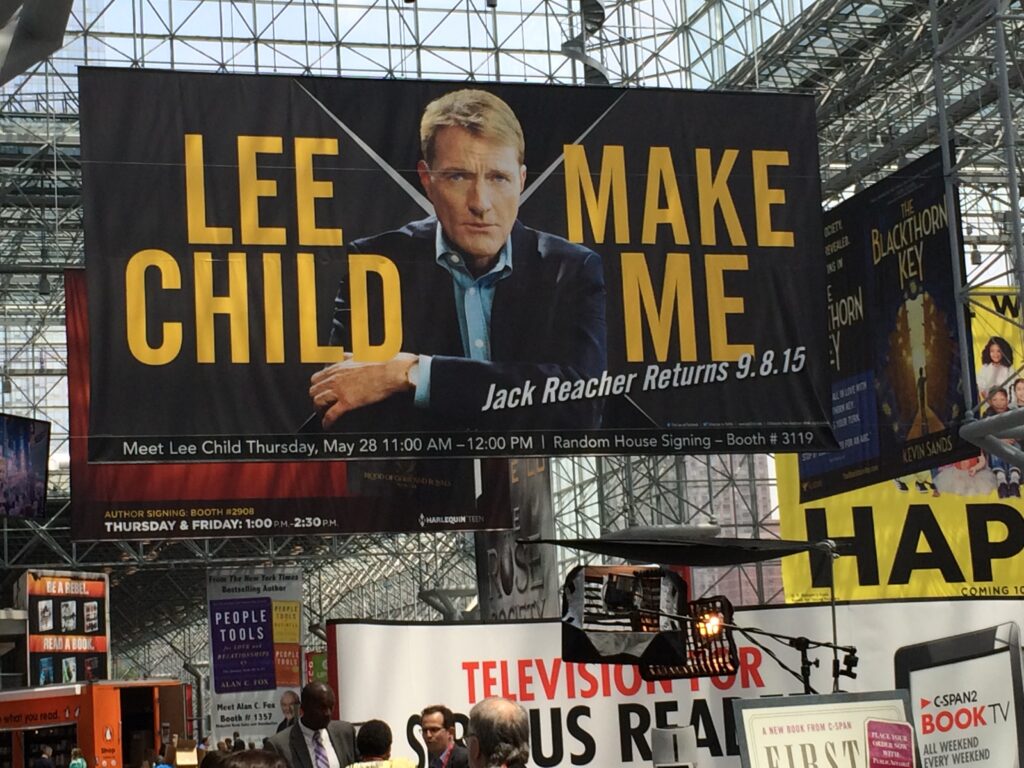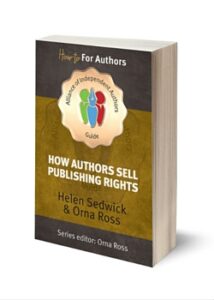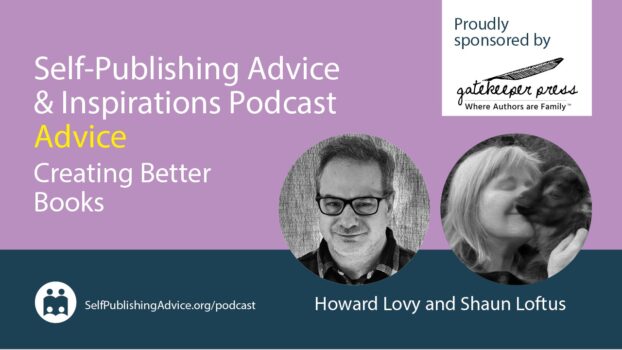Indie authors often wonder whether and why they should be investing in tickets to attend trade publishing fairs such as the London Book Fair, the Frankfurt Book Fair and Book Expo America.
We always advise that this kind of event is more about publishers doing deals with each other, and authors who attend can often feel curiously sidelined there.
However, if you are interested in selling publishing rights in your books, book fairs are a great place to identify potential rights buyers. This extract from the new ALLi guidebook, How Authors Sell Publishing Rights, by Helen Sedwick and Orna Ross, provides a useful introduction to the process.
At a fair, myriad international publishers, agencies and other entities are represented all in one place, and all open to having meetings about buying and selling rights.
Testing the Water
Books fairs are also a useful way to explore the current publishing climate and get an idea of what genres, niches and territories might be a good fit your title’s rights. When building a rights business, it’s invaluable to be able to visit the stands of international publishing houses to assess if they might make good potential buyers for you and to get to know who’s who within their operations.

Spotting the opportunities at Frankfurt Book Fair…
While you need a plan to make the most of the fair, even without appointments, book fairs still provide a good opportunity to do unscheduled meet-and-greets, get emails and build correspondences and networks within the international rights buying community.
Being able to see straight away by going to a vendor’s booth or table if they are a match can be infinitely more valuable than spending time poring over databases and cold querying at home.
An appointment can be sought, a catalogue or sales sheet left on their stand, together with a business card and details of where you can be found at the fair.
Different Approaches
As an author-publisher, you can choose to approach a book fair as a publisher (where your stand is a booth) or agent (where your stand is a table on the rights floor). Both options are expensive and it should be acknowledged that book fairs are not for the fainthearted. Cold callers with unsolicited material may not be welcomed at the stands or tables and the experience of being turned away without a hearing can be disheartening. Your first book fair visit should be a learning experience, which can be built on by correspondence during the intervals between fairs, increasing your range of contacts from fair to fair and year to year.
Break up the cold calls and appointments with educational events and do search out the authors’ area (most book fairs have them to varying degrees of success).
The Three Biggest Book Fairs
The three biggest fairs, and the ones at which the Alliance of Independent Authors has a presence, are: The Frankfurt Book Fair, which takes place each October in Germany; the London Book Fair, which takes place mid-April in England; and Book Expo America, which takes place at the end of each May in NYC or Chicago. Frankfurt, London and BookExpo America are also best for wide range information gathering. If you write children’s books, Bologna’s book fair is a must.

Up against the big boys at BEA
Make a Plan
If you intend to take this route, it's not as simple as just showing up and hoping that a fortuitous, unarranged meeting with a buyer will launch your work. Meetings are arranged in advance with acquisitions editors at international publishing houses. Obtain a copy of the fair catalogue well in advance of the fair, and from there identify publishers whose subject interests appear compatible and find your best matches. List the stands you wish to visit, to further study their range and stye of publications. Larger book fairs often highlight key players attending, which can further assist your searches and matches.
Rights buyers will generally be too busy to see unscheduled sellers. It’s not unusual for literary agents and other rights traders to have appointments every half hour at the large book fairs. As with regular business, the early bird gets the worm, so if you don’t have an appointment with a buyer who you’ve determined would be a good fit for the rights you’re selling, the best time to drop by is early.
This is where rights guides and information sheets come in useful. When you don’t have much time to introduce yourself or your work, you need to have something clear and concise to leave.
It is traditional at fairs for rights sellers to operate from their stands and buyers to move from stand to stand, as the sellers have book samples, catalogues, advance information and sales material to handle. When starting out to sell rights for the first time, however, you may not be able to attract buyers to come to you, so may have to start off by visiting potential buyers, carrying books and sales material around the fair and returning to base as necessary. This can be tiring and awkward but it is likely the only way to make contacts at first.
Appointments
While ad hoc meetings can lead to success, the bread-and-butter activity at a book fair is almost always a result of preparation and planning face-to-face meetings by appointment with interested buyers. The main purpose of an appointment is to finalize pending deals, discuss potential new business and deal with any outstanding problems. Hence it is vital to have all necessary details about the rights buyer and the title to hand (see Materials, below).
When planning a book fair visit, think first about:
- Your objective – what do you want to get out of it?
- The people / companies attending — who is key to you achieving what you want?
- Scheduling — make appointments with key people with whom you want to connect and identify the events you want to attend while you’re there
Reach out to intended contacts eight to ten weeks in advance of the fair you are attending. Target a named individual and make the intended purpose of your meeting clear i.e. that you are selling rights and attach or include details. Give all necessary information but don’t send too much unsolicited material to a new contact, just what’s necessary to stoke interest. Give the dates you are available, if not attending for the full length of the fair, and include your stand number or hall location and a suggested date and time for an appointment.
Assume that no buyer has more than 30 minutes for an appointment and in some cases, even less time will be available. If it is impossible to arrange an appointment, you can write an email after the fair.
Materials
Make up a timetable for yourself and a data sheet for each buyer you will see, to be used as the basis for your meeting. When starting out, this sheet may contain little more than the name of the publishing house or agency, the country, range of subject interest and name of your contact. As you establish more contact and do more research, expand the information to details of books under consideration, any deals finalized, rights sold or under offer, problems or challenges emerging, technical specs, payment details, interest in future projects and so on.
Don’t rely on memory; book fairs are overwhelming and it’s very easy to get confused about details. Organized information will prove its worth.
Follow-up
Prompt and relevant follow-up after a book fair is essential. deal with it immediately after your return. You might even want to stay on an extra day to do follow-up before going back.
Confirm any discussions held on specific deals, particularly financial agreements, other terms agreed and any relevant information e.g. delivery dates or submission materials. Include any relevant catalogue, rights guides, information sheets, sample chapters, manuscripts or reading copies.
Retain the book fair catalogue which can be used to target follow up.
If you are not a member of IPR License or Pubmatch, several fairs now offer online rights information services, enabling publishers to post details of rights available before during and after the fair. The Frankfurt website (www.book-fair.com), for example, catalogues all exhibitors, 30,000+ titles and includes a “Who’s Who” of attendees. You can make appointments to see selected people online and the services are now available throughout the year.
If you can't attend London, BEA or Frankfurt in person this year, you'll be able to tune in online our Indie Author Fringe Conference from the comfort of home. We’ll bring all the fun of the fair to you.
#Authors - here's how to make the most of #bookfairs by @OrnaRoss and @HelenSedwick Click To Tweet


 Indie authors often wonder whether and why they should be investing in tickets to attend trade publishing fairs such as the London Book Fair, the Frankfurt Book Fair and Book Expo America.
Indie authors often wonder whether and why they should be investing in tickets to attend trade publishing fairs such as the London Book Fair, the Frankfurt Book Fair and Book Expo America.


I want to sell my books rights , but how ???
[…] How Authors Sell Rights at Book Fairs – by Orna Ross and Helen Sedwick […]
[…] How Authors Sell Rights at Book Fairs […]
[…] Debbie Young Indie authors often wonder whether and why they should be investing in tickets to attend trade […]